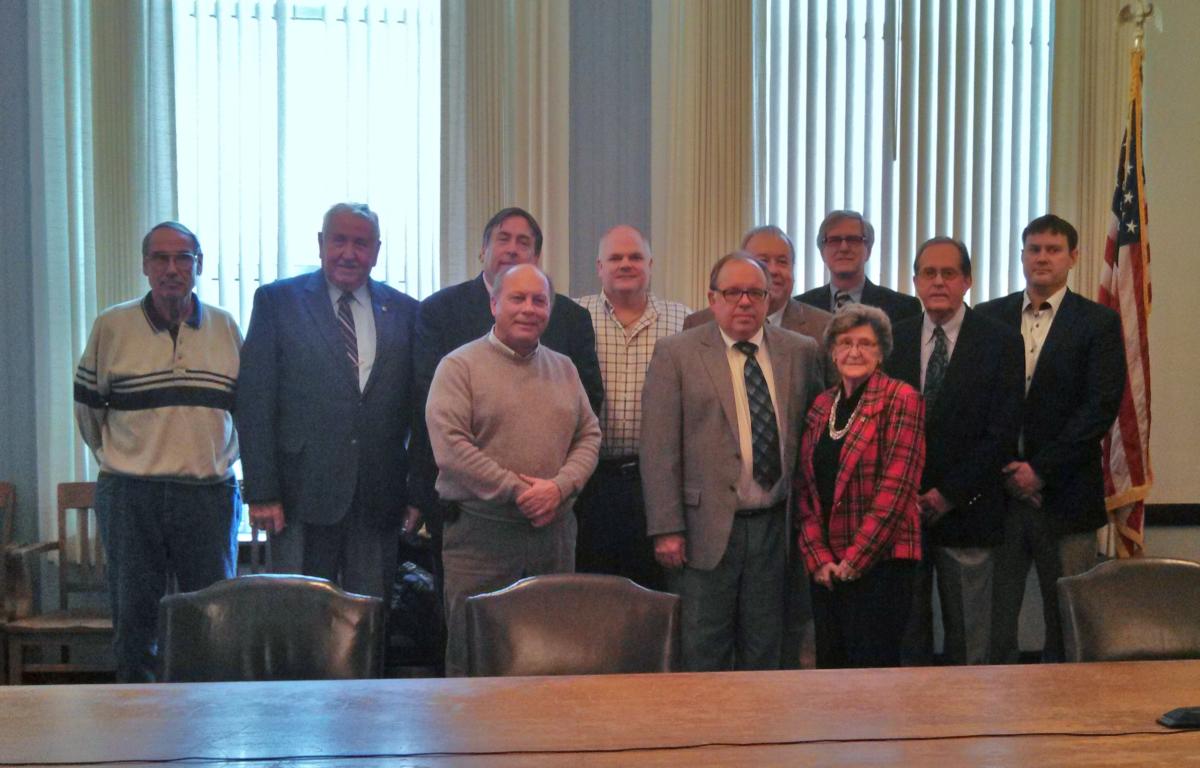By Andrew Walsh
awalsh@wbcowqel.com
Mayor Tom O’Leary lauded the approval of contracts with city workers Tuesday night as a big deal and an important step forward on the path out of fiscal emergency.
Council ratified union agreements with the Fraternal Order of Police, the Ohio Patrolmen’s Benevolent Association, the American Federation of State, County, and Municipal Employees, and the International Association of Firefighters.
“This is the single biggest expenditure of any of our terms,” O’Leary stated in his assessment of the importance of these agreements.
Council ratified these contracts although they technically did not have to. Once agreed upon, they take effect after 30 days. However, Council gave them the official approval as a sign of support and respect for the city workers.
Tom Fellner expressed his belief in the fairness of the contracts, and Council President Carl Watts stated that they, “Negotiated in good faith.”
Further underscoring the importance of these contracts, they give the city three years of stability in labor costs, allowing for greater forecasting with an eye toward financial responsibility. The details of the contracts also contain some important cost saving measures for the city: at the end of these contracts, Galion will no longer be in the pension pick-up business, and the employee share of health insurance will increase to 15%. Three years ago the employee share was zero, currently it is 7.5 percent, and three years from now it will be the aforementioned 15 percent. That represents a significant savings to the city.
O’Leary also took aim at the city’s detractors. He offered up these agreements as a counterpoint to those who, in his words, claimed, “we’re not getting anything done.”
Galion is looking at ways to improve its electrical service capabilities to various businesses in town. They are in phase three of a five-phase upgrade project to their power supply capacity, and preparing a diagnostic study to ensure that this upgrade will be of maximized potential. There will be particular focus on the Heise Park substation. This substation services some of the larger businesses in town, amounting to 500-600 jobs. The problem here is that this station suffers currently through some dips and surges that have cause problems with these businesses. These surges and dips have caused these businesses to incur some costs, and council is hoping to find out what can be done to remove them.
“We’ve got to be responsive,” O’Leary said, “and we really don’t have the in-house ability.” That is why this project is being undertaken by engineering firm GPD.
“I think it’s important that we do what we can to help the local businesses in town,” Councilman Eric Webber added.
The Majid Ressallatt story took another turn, as an ordinance that would establish his compensation was sent back to the Finance Committee. New documents have surfaced on this already much discussed issue, documents that need to be fully considered before any further action is taken. Law Director Thomas Palmer brought to the attention of council some documents that only presented themselves to him on the day of the meeting. They point to an easement that has been in place since the 1950s that had currently been under the radar. The current Ressallatt house sits partially on this easement, and Palmer asked for time to consider what this new development means in the entire context of this issue.
Council threw its support behind Galion East Apartment’s plan for rehabilitation. The complex is looking for support as it seeks grant money for a massive improvement project. Police Chief Brian Saterfield lauded the intent by Galion East, calling it a “significant economical investment” and added that problems rarely emanate from that section of the community. The resolution passed.
The mayor and police chief also asked for cooperation with the snow removal work that sometimes necessitates the removal of cars from the street. While both stressed that, “It’s not cash in day,” they acknowledged that some cars need to be towed. This is not the intention of the city, and Saterfield added that they do their best to contact car owners before towing becomes necessary. Once the streets are clear of snow, citizens may resume parking their cars along the curb.


